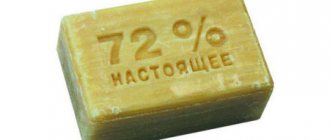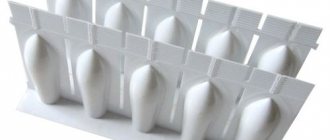Vitamins for stomach and intestinal health
Of all the organs and systems, the digestive system has the most contact with the external environment. Its area is approximately 350 m2. This is incomparably more than the surface of the skin. The first blow in stressful situations, unhealthy lifestyle and diet is taken by the organs involved in food processing. Therefore, vitamins for the stomach and intestines are extremely important; they help reduce damage from harmful foods, alcohol and medications.
Normally, the intestinal microflora is capable of producing a number of vitamins on its own. If it is disrupted, then the body does not receive enough of the necessary compounds. But this is not the only problem. An attempt to compensate for the deficiency with medications and dietary supplements is often doomed to failure. This is explained by the fact that the absorption of nutrients from food is disrupted, and especially the processing of synthetic vitamins.
In patients with diseases of the digestive system, taking complex medications leads to allergic reactions and worsening vitamin deficiency. The way out of the situation is to switch to a healthy, balanced diet, restore the microflora, and only after that use vitamins. In any case, their intake from food should be the main method for treating hypovitaminosis.
Which ones are needed?
The main vitamin components that should be present in the diet:
- A and its provitamin form (beta-carotene) protect mucous membranes from damage, regulate protein synthesis, and improve immune defense. Recommended for ulcers in the stomach, intestines, gastritis;
- E – helps the absorption of vitamin A, improves smooth muscle function, motor activity of the digestive system, restores tissue after destruction, prevents the formation of rough scars during the healing of ulcerative defects;
- C – improves tissue regeneration processes during inflammation, increases immune defense, promotes iron absorption;
- group B - participate in the motor activity of the smooth muscles of the stomach and intestines, the formation of digestive enzymes, the absorption of carbohydrates and fats from food;
- nicotinic acid – enhances motor activity, improves food digestion, increases bile secretion.
Trace elements and active compounds
To support the formation of gastric and intestinal juice and enzymes, it is important to have the following biologically significant components in food (nutrients):
- sulfur – improves the protective properties of membranes, binds and removes toxins;
- pectin – ensures the predominance of beneficial intestinal microflora, stimulates regular bowel movements;
- magnesium – laxative, facilitates the removal of metabolic products;
- zinc – necessary for the functioning of the pancreas and liver, participates in the formation of gastric juice;
- lipoic acid – protects cells from destruction by free radicals (antioxidant);
- levocarnitine - ensures active peristalsis (contraction of the stomach and intestinal walls), the release of enzymes in the pancreas.
Which multivitamin complexes to choose?
Preparations in the form of multivitamin capsules must ensure the need and intake of those substances into the body that are excluded from the diet by dietary requirements and are not absorbed due to illness. This is a maintenance therapy that eliminates imbalances of vitamins and microelements. A specific medication, for example, “Milgamma” and its dosage, is determined only by a doctor, otherwise irreparable harm to health can be caused.
Each patient has characteristics of the body in which certain components of the vitamin complex may not be absorbed (competitive absorption, mutual suppression or enhancement of action, etc.). However, it should be remembered that preparations containing iron (its derivatives) contribute to irritation of the gastric mucosa, so they should not be taken. The decisive role is played by the dynamics of diet correction, saturating the body with useful substances, under the guidance of a doctor. Components of fresh vegetables and fruits, rather than vitamins of synthetic origin, contribute to better health.
Healthy food for the stomach and intestines
There are a number of products that, due to their composition, can have not only nutritional properties, but also medicinal value for diseases of the digestive system.
Prunes
Dried and fresh plums have a laxative effect due to dietary fiber and orogenic acids. They contain a lot of vitamin B2, E and P, and iron. They have a pronounced cleansing effect and remove excess cholesterol from the body.
Sauerkraut
When fermented, the sugar contained in cabbage leaves turns into lactic acid. It increases appetite, enhances the secretion of gastric juice, and speeds up the digestion of food. This product is recommended for inclusion in the diet for obesity, low acidity of gastric juice, and chronic constipation.
Pumpkin
Vegetable fiber is easily digestible, so it is often recommended for dietary nutrition. Helps with constipation, swelling, excess salts in the body. Pumpkin is useful for diseases of the liver, gall bladder, and intestines. Contains a lot of beta-carotene, ascorbic acid, vitamins B1 and B2.
Kalina
Viburnum juice is drunk to improve the healing of stomach ulcers with reduced acidity; it is useful for diarrhea and gastrointestinal bleeding. Drinks with viburnum berries are taken for liver diseases. It contains a lot of vitamin C and organic acids, astringent compounds.
Pears
The fruits are valued as a source of folic acid, an arbutin glycoside that has disinfectant properties. Due to the fact that the pulp contains stony inclusions, pears are allowed to be included in the menu in the absence of an active inflammatory process in the intestines. Pear compotes and dishes have an astringent effect.
Apples
They have a universal effect - they treat diarrhea and constipation. In the first case, pectin removes pathological bacterial flora and toxins from the intestines and cleanses it. When constipated, dietary fiber activates the movement of intestinal contents. Grated apples are prescribed to children with a tendency to loose stools or poisoning; they are also useful after operations to restore intestinal function.
Chokeberry
Contains a lot of antioxidants, vitamin E, folic and nicotinic acid. Recommended for bleeding, hypoacid (low acidity) gastritis, hepatitis, diarrhea, as a source of vitamins, especially together with rose hips.
Kiwi
Along with fiber, it contains vitamins C, B2, E, nicotinic acid, and potassium. A special feature of these fruits is the presence of enzymes that help break down proteins from food. Improves the functions of the stomach and gall bladder, and is useful for constipation.
Bananas
They contain delicate fiber, amino acids tryptophan and serotonin, as well as magnesium and vitamin B6. They have a normalizing effect on intestinal functions, gently laxate, envelop, and improve digestion. It is recommended to consume half an hour before the main meal.
Kefir and curdled milk
Lactic acid drinks must be included in the diet for intestinal diseases. They are obtained from milk using special starter cultures. They convert lactose (milk sugar) into lactic acid. Thereby:
- anti-inflammatory effect increases,
- allergenicity decreases,
- tolerance improves,
- proteins are partially broken down,
- the concentration of B vitamins increases.
Kefir and yogurt suppress the growth of pathogenic microbes and improve the secretion of enzymes and intestinal juice. It is recommended to prepare them yourself. For constipation, take one-day doses, and for diarrhea – 2-3 days. When purchasing in a store, you need to carefully study the composition and expiration date. Products with dyes, preservatives and long-term storage are not suitable for medicinal purposes, since even if they are not spoiled, there are fewer and fewer beneficial lactobacilli every day.
Use of ascorbic acid for gastritis
Ascorbic acid plays a significant role in gastritis and in the metabolic processes of the body. It increases the defenses, which means it favors the recovery of patients with gastritis. In people who smoke and those exposed to passive smoking, the consumption of ascorbic acid increases significantly, which means the daily requirement should be higher than normal - 150-200 mg.
For chronic atrophic gastritis, vitamin C is allowed to be consumed in the form of a pharmaceutical preparation. Drink vitamin C after meals, wash it down with clean water, but not tea or other drinks.
We recommend: Protein for gastritis
Vitamin C is found in rose hips, sea buckthorn, greens, citrus fruits, red fruits, cauliflower, green peas, and beans. However, not all products are allowed for a certain form of gastritis. Therefore, the use of each product should be coordinated with your doctor.
Compliance with the rules for the use of useful substances for gastritis gives a positive result in the complex treatment of a serious stomach disease. Vitamins will become real helpers for any form of gastritis when it is necessary to follow a diet. During this period, the body does not receive enough nutrients. And in order to increase the body’s protective functions, it needs beneficial substances that are found in certain foods or pharmaceuticals.
G
M
T
Audio feature limited to 200 characters
| Settings: History: Feedback: Donate | Close |
https://youtu.be/QL4eRt4hfMs
Medicinal plants for the intestines
For preventive and therapeutic purposes in case of inflammation of the small and large intestines, it is recommended to prepare a collection from the following plants:
- chamomile flowers - disinfect, relieve spasms and pain, reduce inflammation, have a carminative effect, accelerate the healing of ulcers;
- oregano herb – eliminates fermentation, bloating, has an antimicrobial effect, relaxes the intestinal wall during painful contractions;
- Calendula flowers are a strong antiseptic, have a choleretic and astringent effect, relieve nausea, vomiting, and belching;
- St. John's wort - improves food digestion, stimulates the healing of mucous membranes, restores peristalsis, and relieves pain.
A full course of treatment will require 50 g of each plant. They are thoroughly crushed and poured into a linen bag. For infusion, pour a tablespoon of the mixture into a glass of boiling water and infuse for 60 minutes in a sealed container. 30 minutes before main meals, take a third of a glass warm.
How much will it cost to purchase dietary supplements for the Healthy Gut program?
I got about 6,300 rubles per person (about $100). You can see what a set of nutritional supplements for the Healthy Gut program looks like here:
upd new cart, June 2020
https://ru.iherb.com/tr/cb?pcodes=CLF-06419_SOR-62754_NOW-02967_DRB-00025_HOG-55515_NOW-02934_PAR-77869_NOW-03308&rcode=CKV468
(the final price will be visible after adding promo code ckv468 to the cart)
I made a video for you in which I talk about my set of supplements for completing the Healthy Gut program:
Dishes with a cleansing effect
In the menu for intestinal diseases, it is recommended to include dishes that can gently cleanse the intestines without causing mechanical or chemical irritation or bloating.
Oatmeal jelly for the intestines
For this healthy dish you need 150 g oatmeal and twice as much water. The oatmeal is washed and filled with water (room temperature) overnight. In the morning, mix thoroughly and place on a sieve. The cereal is used for porridge or soup, and the liquid is placed on low heat and boiled to a semi-viscous consistency. This dish has a healing effect and is prescribed 100 ml 2-3 times a day 40 minutes before meals. Indications for its use:
- gastritis with increased acid-forming function of the stomach;
- peptic ulcer of any localization;
- chronic enterocolitis;
- inflammation of the sigmoid colon;
- diarrhea;
- digestive disorders in children (10 ml 5 times a day).
Pumpkin dessert for constipation and colitis
With colitis, gentle nutrition is necessary, and if you have a tendency to have infrequent bowel movements, it is important to simulate its activity. A dish of pumpkin and baked apples meets these two conditions. It can be eaten for breakfast or as a snack between meals. It is necessary to cut 300 g of pumpkin into cubes, add a third glass of water and simmer over low heat until completely softened. Remove seeds and peel from a large baked apple and add to the pumpkin. Beat with a blender with 50 g of fresh yogurt.
Live zucchini soup
If there is no inflammatory process, and the intestines become lazy from a sedentary lifestyle, then zucchini can have a good cleansing effect in its raw form. This way vitamins and biologically active compounds are better preserved. This dish should be eaten at least once a week. For this you need to take:
- zucchini or zucchini – 200 g,
- celery stalk – 100 g,
- young carrots – 100 g,
- water – 300 ml,
- nutmeg and a pinch of turmeric.
All vegetables are peeled, chopped finely, combined with water and blended with a blender. When serving, decorate with greens.
Berberine Supplement
In addition to the herbal combination remedy, it is advisable to take a berberine supplement such as berberine hydrochloride (400 mg) or berberine sulfate (400 mg).
- Solaray, Berberine Special Formula, 60 Veggie Capsules
- Paradise Herbs, Berberine, 60 Vegetarian Capsules
If you can't find berberine anywhere, you can instead take Oregon grape root or hydrastis root, which contain high amounts of berberine:
- Nature's Way, Oregon Grape Root, 500 mg, 90 Capsules
- Eclectic Institute, Hydrastis Root (Goldenseal), 400 mg, 50 Vegetarian Capsules
If the financial issue is very difficult, then you can limit yourself to a good antimicrobial complex, which will include either berberine or Oregon grape root, for example Rainbow Light, Candida Cleanse.
Solaray, Berberine
Contraindications
Multivitamins are selected taking into account the diagnosed deficiency of microelements, the child’s diet, the individual characteristics of the baby (growth and development rate, concomitant diseases) and the doctor’s recommendations.
Contraindications:
- allergies, individual intolerance;
- diseases of the kidneys, liver, blood vessels, heart, urinary system;
- nervous disorders;
- impaired metabolism and obesity;
- rational nutrition, hypovitaminosis;
- insulin dependence;
- pathology of the thyroid gland.
Diet and dishes for digestion: recipes for preparing simple dishes
Some recipes for everyday dishes will help get rid of heaviness in the stomach and improve the digestion process.
Carrot and beet salad “Metelka”:
- Grate one large carrot on a coarse grater
- Peel one large beet and grate on a coarse grater
- It is recommended to add your favorite greens to the salad: parsley, dill, basil
- The salad can be salted and peppered to taste
- Season the salad with flaxseed or olive oil in moderation.
Pumpkin seasoned with honey and seeds:
- First you need to peel the pumpkin and chop it into small cubes
- Boil the pumpkin in lightly salted water or bake in the microwave
- The cooked pumpkin is placed in a salad bowl, sprinkled with pumpkin seeds, flax seeds and sesame seeds.
- Pumpkin is seasoned with warm natural honey
recipes for good and fast digestion
Lentil and Cauliflower Casserole:
- Cabbage inflorescences must be separated and boiled in salted water until soft.
- cooked cabbage is put into a blender and pureed, vegetable oil and garlic are added to it to taste
- Boil the lentils until soft and drain the water.
- Mushrooms with grated carrots are fried in large pieces in a frying pan.
- Fill the casserole dish in layers: lentils, mushrooms, cabbage mixture
- The dish is baked in the oven at a temperature of 200 degrees for up to 15 minutes.
Is it worth taking?
Expert opinions differ. Some believe that taking vitamin complexes for a short time will strengthen the immune system. Others insist on a balanced diet and an active lifestyle without the intervention of nutritional supplements.
But situations arise in which it is advisable for a 5-year-old child to take a course of multivitamins:
- cold season (spring, autumn, winter);
- flu epidemic;
- after treatment with antibiotics, immunomodulators, hormonal drugs;
- congenital immunodeficiency virus (HIV);
- severe injuries;
- operations;
- poor eyesight;
- diseases of the nervous system;
- rare genetic diseases;
- increased stress (study, sports);
- poor nutrition (qualitative and quantitative).
Special vitamin complexes have been developed for specific problems:
- For immunity: A, B, C, E, lecithin, zinc, selenium, omega-3 fatty acids, echinacea, probiotics, lactobacilli.
- For appetite: A, C, B12, iron.
- For growth: A, D, B11, calcium, sodium, potassium, magnesium, iodine.
- For memory: D, P, B, A, C, E, selenium, molybdenum, iodine, omega-3, omega-6.
- For vitamin D deficiency: D2, D3, E, calcium, magnesium, selenium, copper, omega-3.
- For calcium deficiency: D2, D3, A, E, magnesium, sodium, potassium.
When choosing a complex, pay attention to the content and mass fraction of vitamins, macro/microelements, excipients/compounds.
How to massage to improve digestion?
Massage is another simple manipulation that will help your intestines work a little better and more actively. This massage can be performed on both adults and children; it has no contraindications and always has a beneficial effect on the gastrointestinal tract.
Massage has three main benefits:
- it promotes the removal of toxins from the body
- improves the digestion process
- reduces pain syndromes arising in the stomach
How to massage the stomach correctly:
- The massage therapist’s movements (or your movements) must be smooth, slow and without strong nama
- Stroking movements should occur along the abdominal muscles
- Movements should penetrate deep into the abdominal cavity
- Massage is best done only after complete bowel movement, in order to affect both walls of the intestine.
- Massage should be done neither on an empty nor on a full stomach. It is best to have a snack that is not heavy, light food
- Massage is effective only when lying on your back
abdominal massage to improve the digestion process
Movements for abdominal massage:
- stroking with light circular movements clockwise
- circular gentle pressure on the abdomen
- intense circular and longitudinal movement of the hands along the side walls of the abdomen
It is best to entrust abdominal massage to a professional massage therapist, since incorrect and too intense movements can cause irritation.
Rating of the best
| Brand/Name | Release form | Dosage, day | Peculiarities |
| Sana-Sol (Finland) |
| 1 PC. or measuring spoon | Has a citrus smell and taste. Suitable for strengthening the immune system. |
| Pikovit 4+ (Russia, Slovenia) |
| 3–4 pcs. per day | Recommended for unbalanced diet, increased stress and frequent colds. |
| Pikovit PLUS 4+ |
| 3–4 pcs. or 1 tsp. | It has a pleasant aroma and taste. In addition to vitamins, it contains iron, calcium, iodine, zinc. Prescribed for seasonal vitamin deficiencies to improve immunity. |
| Vitrum Kids (USA) | chewable lozenges | 1 PC. | Contains the daily requirement of microelements. They are used for vitamin and mineral deficiency, as well as during the period of rehabilitation after illnesses and operations. |
| VitaBears IMMUNO+ (Germany) | shaped chewable lozenges | 1 PC. | Contains 2 vitamins (C, E), 2 minerals (selenium, zinc), sea buckthorn extract. Acts as an immunomodulator. |
| VitaMishki MULTI+ | gummies with different flavors | 1 PC. | The composition contains 11 vitamins, zinc, iodine. Strengthen the immune system, stabilize the functioning of the nervous system, have a beneficial effect on memory, and promote concentration. Recommended for children in preschool education. |
| Univit Kids (Germany) | chewing marmalade | 1 PC. | The composition is enriched with choline and omega-3 fatty acids. Improves brain activity. |
| Supradin Kids (Germany) |
| 1 PC. or measuring spoon | Used to replenish micronutrient deficiencies. Choline and omega-3 help boost brain function. |
| Kinder Biovital (Germany) | gel | 1/2 tsp. | Contains a complex of vitamins, calcium, potassium, manganese, lecithin. Indicated for use in cases of rickets, slow growth, regular exercise, stress, and also during chemotherapy. |
| Alphabet Kindergarten (Russia) | Chewable tablets in different flavors | 3 pcs. | Used for lack of vitamins and minerals, high mental stress. |
| Multitabs Junior (USA) | chewable tablets | 1 PC. | Balanced taking into account the needs of the child's body. Do not contain allergens (dyes, preservatives). Designed to support growth and development. |
| Centrum for children (Italy) | chewable tablets | 1 PC. | The composition includes 17 microelements. It is used for vitamin deficiencies and polyvitaminosis. |
| Jungle (USA) | chewable tablets | 1 PC. | Designed for the prevention and treatment of vitamin deficiency. Contain a large amount of iodine, calcium, phosphorus. Contributes to the development of the child. |
| Cavit Junior (Romania) |
| 1 PC. or 1/2 scoop | Contains vitamins, calcium, potassium, lutein (protects eyes from external influences). Protects against colds. |
How to improve digestion for children?
Every caring mother wants to save her child from digestive problems and eliminate all uncomfortable conditions that do not allow the baby to cope with food. Some simple recommendations can help your child improve their gastrointestinal tract processes:
- Teach your child to chew food thoroughly and slowly. This will help the food enter the stomach already thoroughly crushed. In turn, it will be easier for the stomach to cope with it and it will not experience discomfort.
- Teach your child to eat food in large pieces and on the go. If he eats this way, he puts too much strain on his stomach and it refuses to work in response, because it is difficult for him to cope with such complex food. You need to eat in a calm environment, slowly and leisurely
- Include as much fiber as possible in your child's diet. There is nothing wrong with replacing large amounts of sugar, starch and fat with healthy vegetables, whole grain bread, fruits and berries. Digestion of such products will be easy and calm
- Make sure that the food your baby eats is neither cold nor too hot. The fact is that food begins to be digested only when it reaches the human body temperature, so if the stomach does not receive the correct temperature, it spends energy on “improving” it and feels discomfort
- Minimize fast food products in your child's diet: crackers, chips, hot dogs, soda, cakes, hamburgers. These products overload the gastrointestinal tract and provide virtually no benefit to the body, except for carbohydrates
- Teach your child to eat properly and on time: do not forget to have breakfast, eat first courses every day, limit heavy foods, saturate the body with vitamin foods, and do not eat at night.
- Include a large amount of fermented milk products in your child’s diet, which simplify the gastrointestinal tract and replenish the number of necessary bacteria in the intestines
Tips for improving your baby's digestion
Indications for use
Lack or excess of vitamins equally negatively affects the child’s body. Therefore, pediatricians prescribe multivitamins to five-year-olds only in specific cases:
- The child is on a special diet.
- Refusal of certain foods.
- Serious illness or rehabilitation period.
- Taking medications that interfere with the synthesis or absorption of vitamins.
- Allergy to certain food groups.
- The individual needs of the child’s body, established during the examination.
- Problems with vision, growth, or mental development.
The best choice for 5-year-old children is multivitamin complexes taken three times a day (blisters with 3 tablets/lozenges of different compositions) without dyes and heavy metals.
Their composition is selected taking into account the compatibility of individual components. Attention! Only a professional can choose a vitamin complex for your baby. Therefore, we advise you to find a pediatrician and contact him for advice.
Absorption of calcium in the body
If you are trying to increase calcium levels in your body, consider the following factors that affect calcium absorption:
You're eating too much sodium. Salt can increase calcium loss.
Smoking and tobacco use. Habits such as smoking and tobacco use can contribute to calcium loss, decreased bone density, and increased risk of fractures. Other lifestyle factors common among smokers, such as lack of physical activity, early menopause, poor diet or alcohol consumption, may also contribute.
Consumption of animal protein. Consuming large amounts of animal protein can increase the removal of calcium from the bones.
Consuming animal calcium . The study found that calcium from leafy greens is absorbed at a significantly higher rate than from dairy products.
Calcium from Brussels sprouts was absorbed by 64%, calcium from cabbage by 50%, and calcium from cow's milk by 32%.
Other nutrients are needed. In order for your body to absorb and use calcium properly, you need other nutrients, including vitamins D, C, K, E, magnesium and boron.
Obtain calcium only from oxalate-containing sources. Oxalates can interfere with the absorption of calcium, so you should not rely on oxalate-rich foods such as spinach, rhubarb, beets and chard as they contain calcium. Be sure to eat other calcium-rich foods, such as those listed above, to get what you need.











